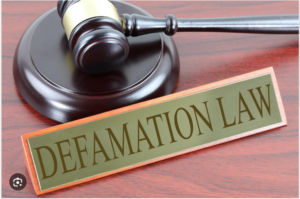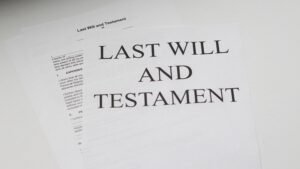INTRODUCTION
The 1992 Constitution of Ghana granted Parliament the power to create lower courts and these include the District Court, Circuit Court, and the Judicial Committees of the Chieftaincy Institutions. The 1992 Constitution, Courts Act 1993 (Act 459) and any other relevant statute stipulate the jurisdiction of the courts in Ghana. The jurisdiction of a court refers to the power a court has to adjudicate on matters that come before it and to issue orders. The issue of jurisdiction is very fundamental and it goes to the root of every proceeding. It is therefore necessary to ensure that every court acts within its mandate and to ensure order in the judicial system.
Jurisdiction of Civil Jurisdiction of Circuit Courts:
1.The civil jurisdiction of a Circuit Court consists of the following—
- original jurisdiction in civil matters—
- in personal actions arising under contract or tort or for the recovery of any liquidated sum, where the amount claimed is not more than ¢100 million. Note that the Courts Regulations, 2020 (L. I. 2429) has expanded the jurisdiction of the lower courts in respect of the amount or value specified for claims. The monetary value now stands at Two Million Ghana Cedis (GH¢ 2,000,000.00).
- in actions between landlord and tenant for the possession of land claimed under lease and refused to be delivered up;
iii. in causes and matters involving the ownership, possession, occupation of or title to land;
- to appoint guardians of infants and to make orders for the custody of infants;
- to grant in any action instituted in the Court, injunctions or orders to stay waste, or alienation or for the detention and preservation of any property the subject matter of that action or to restrain breaches of contract or the commission of any tort;
vi.in claims of relief by way of interpleader in respect of land or other property attached in execution of an order made by a Circuit Court;
vii. in applications for the grant of probate or letters of administration in respect of the estate of a deceased person, and in causes and matters relating to succession to property of a deceased person, who had at the time of his death a fixed place of abode within the area of jurisdiction of the Circuit Court and the value of the estate or property in question does not exceed ¢100 million. The monetary value now stands at Two Million Ghana Cedis (GH¢ 2,000,000.00).
- any other jurisdiction conferred by the Courts Act or any other enactment.
- Where there is a dispute as to whether or not any amount claimed or the value of any property in any action, cause or matter is in excess of the amount or value specified for the Circuit Court in relation to that action, cause or matter, the Circuit Court in question shall call evidence as to the said amount or value and if it finds that it exceeds the amount or value specified for the Circuit Court, it shall transfer the case to the High Court.
- Where the amount claimed or the value of any property exceeds the amount or value specified for the Circuit Court, the Circuit Court shall, notwithstanding the amount or value specified, proceed to hear the case if the parties agree that it should do so.
- The Attorney-General may by legislative instrument amend the amount or value specified for the Circuit Court. [Substituted by Courts (Amendment) Act, 2002 (Act 620) s.5]
Criminal Jurisdiction of Circuit Courts:
A Circuit Court has original jurisdiction in all criminal matters other than treason, offences triable on indictment and offences punishable by death. [Substituted by Courts (Amendment) Act, 2002 (Act 620) s.5]
Appeals from Circuit Courts:
A person aggrieved by a judgment of a Circuit Court in any civil action may, subject to the Courts Act and Rules of Court, appeal to the Court of Appeal against the judgment.
A person aggrieved by a judgment of a Circuit Court in criminal trial may, subject to the Courts Act and Rules of Court, appeal to the High Court. [Substituted by Courts (Amendment) Act, 2002 (Act 620) s.5]
Civil Jurisdiction of District Courts:
- A District Court shall within the area of its jurisdiction have civil jurisdiction in the following matters—
- in personal actions arising under contract or tort for the recovery of any liquidated sum where the amount claimed does not exceed ¢50 million. This value now stands at Five Hundred Thousand Ghana Cedis (GH¢ 500,000.00) as per the Courts Regulations, 2020 (L. I. 2429).
- to grant in any action instituted in the District Court injunctions or orders to stay waste or alienation or for the detention and preservation of any property the subject matter of that action, or restrain breaches of contracts or the commission of any tort;
- in claims for relief by way of interpleader in respect of land or other property attached in execution of a decree made by the District Court;
- in civil causes or matters relating to the landlord and tenant of any premises or any person interested in such premises as required or authorised by any law relating to landlord and tenant;
- in actions relating to ownership, possession or occupation of land where the value of the land does not exceed ¢50 million. This value now stands at Five Hundred Thousand Ghana Cedis (GH¢ 500,000.00) as per the Courts Regulations, 2020 (L. I. 2429).
- in divorce and other matrimonial causes or matters and actions for paternity and custody of children;
- in applications for the grant of probate or letters of administration in respect of the estate of a deceased person, and in causes and matters relating to succession to property of a deceased person, who had at the time of his death a fixed place of abode within the area of jurisdiction of the District Court and the value of the estate or property in question does not exceed ¢50 million. This value now stands at Five Hundred Thousand Ghana Cedis (GH¢ 500,000.00) as per the Courts Regulations, 2020 (L. I. 2429).
- Where there is dispute as to whether or not any amount claimed or the value of any land or property in any action, cause or matter is in excess of the amount or value specified for the District Court in relation to that action, cause or matter the District Court in question shall call evidence as to the said amount or value and if it finds that it exceeds the amount or value specified for the District Court, it shall, subject to the powers of transfer of the Chief Justice, transfer the case to a Circuit Court.
- Where in any action, cause or matter the amount claimed or the value of any land or property exceeds the amount or value specified for the District Court, the District Court shall notwithstanding that subsection, proceed to hear the case if the parties agree that it should do so.
- The Attorney-General may by legislative instrument amend the amount or value specified for the District Court. [Substituted by Courts (Amendment) Act, 2002 (Act 620) s.5]
Criminal Jurisdiction of District Courts:
- In criminal matters a District Court has jurisdiction to try summarily—
- an offence punishable by a fine not exceeding 500 penalty units or imprisonment for a term not exceeding 2 years or both;
- any other offence (except an offence punishable by death or by imprisonment for life or an offence declared by any enactment to be a first degree felony) if the Attorney-General is of the opinion that having regard to the nature of the offence, the absence of circumstances which would render the offence of a grave or serious character and all other circumstances of the case, the case is suitable to be tried summarily;
- an attempt to commit an offence to which paragraph (a) or (b) applies;
- abetment of or conspiracy in respect of any such offence.
- A District Court shall in the exercise of its jurisdiction in criminal matters not impose a term of imprisonment exceeding 2 years or a fine exceeding 500 penalty units or both.
- A District Court does not have jurisdiction to try an offence punishable by death or by imprisonment for life or an offence declared by any enactment to be a first degree felony.
- Where under any enactment increased punishment may be imposed upon any person previously convicted of a crime, a District Court may impose the increased punishment, or twice the maximum punishment prescribed whichever is the lesser.
- The Attorney-General may by legislative instrument amend the amount or value specified for the District Court. [Substituted by Courts (Amendment) Act, 2002 (Act 620) s.5]
Appeals from District Courts:
A person aggrieved by a judgment of a District Court in any civil or criminal action may, subject to the Courts Act and Rules of Court, appeal to the High Court against the judgment.
Jurisdiction of Juvenile Courts:
- The Chief Justice may designate any District Court as a Juvenile Court.
- A Juvenile Court shall be composed of the Magistrate of the District Court as the presiding person and two other persons one of whom shall be a Social Welfare Officer and the other, a person of not less than 25 years both of whom shall be appointed by the Chief Justice on the recommendation of the Director of Social Welfare.
- A Juvenile Court has power to hear and determine any matter civil or criminal that involves a person under the age of eighteen and shall for that purpose have and exercise all the powers of a District Court. [Substituted by Courts (Amendment) Act, 2002 (Act 620) s.5]
Jurisdiction under the Children’s Act:
A District Court also has jurisdiction to hear and determine any action that arises under the Children’s Act, 1998 (Act 560) and shall for the purposes of that enactment be the Family Tribunal and exercise the powers conferred on a Family Tribunal under that Act and any other enactment. [Substituted by Courts (Amendment) Act, 2002 (Act 620) s.5].
Note that the lower courts are not clothed with the power to hear contempt applications. Per article 126(2) of the 1992 Constitution, it is only the superior courts that can hear matters of contempt of court. Therefore, a matter as to contempt arises in the lower courts, such application for contempt is to be filed in the superior court.
In conclusion, the jurisdiction of these lower courts is clearly defined to ensure systematic legal practice in Ghana.
By; Vida Narkie Odonkor Esq.
Disclaimer: This publication is for information purposes only and is not intended to constitute legal advice. If you require information on any matter discussed in this article, kindly reach out to the firm directly.
Nartey Law Firm is a leading corporate and commercial law firm in Ghana providing legal services to individuals, domestic and international businesses. Ensuring the success of our clients’ objectives is at the core of what we do. Comprised of a dedicated team of lawyers with extensive experience in corporate, commercial and international law and litigation, we pride ourselves with the diligent execution of all client matters, whilst guaranteeing an uncompromising standard with respect to excellence in service delivery. Some of our focus areas are Real Estate, Trade and Commerce, Banking and Finance, Regulatory Advisory, Capital Markets and Mergers and Acquisitions.
CONTACT:
NARTEY LAW FIRM
TEL: +233 (0)553508582
Email:info@narteylaw.com









